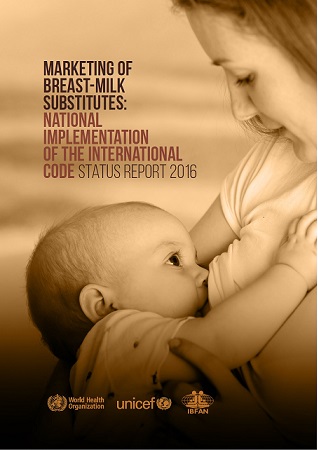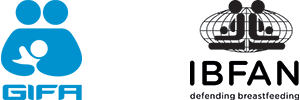
On 9 May 2016, WHO, UNICEF and IBFAN had the pleasure to hold an evening of discussion on national implementation of the International Code of Marketing of Breast-milk Substitutes and subsequent relevant WHA resolutions at Geneva Press Club. Watch the event podcast on http://new.livestream.com/GvaPressClub/Breastfeeding.
Breastfeeding is unparalleled in providing the ideal food for infants:
- breastmilk contains antibodies that protect against many common childhood illnesses;
- increasing breastfeeding rates could save more than 820 000 lives each year;
- breastfed children perform better on intelligence tests, are less likely to be overweight or obese, and less prone to diabetes later in life;
- increasing breastfeeding rates could prevent an estimated 40 000 breast cancer deaths per year.
In spite of its critical importance as the cornerstone of child health and survival, aggressive and inappropriate marketing of breast-milk substitutes, and other food products that compete with breastfeeding, continues to mislead parents and undermine efforts by Member States to protect and support children’s rights to health and ensure sound objective information.
Implementation through effective regulation of the International Code of Marketing of Breast-milk Substitutes, adopted by the World Health Assembly in 1981, and the subsequent relevant WHA resolutions is essential if inappropriate marketing practices are to be eliminated.
WHO, UNICEF and IBFAN have prepared the first joint global report on the status of the Code in 194 countries. The report presents the legal status of the Code, including to what extent Code provisions have been incorporated in national legal measures, and provides information on the efforts made by countries to monitor and enforce the Code through the establishment of
formal mechanisms.
To enhance support to countries for International Code implementation, WHO has formed a
network of UN, civil society, and academic organizations. Called NetCode, this partnership is
developing protocols and tools for Code monitoring and enforcement, providing direct technical assistance to countries, and advocating for complete adherence to the International Code.
For more information on the panel, click here.
The event was followed by a showing of the movie “Tigers”, sponsored by IBFAN.
